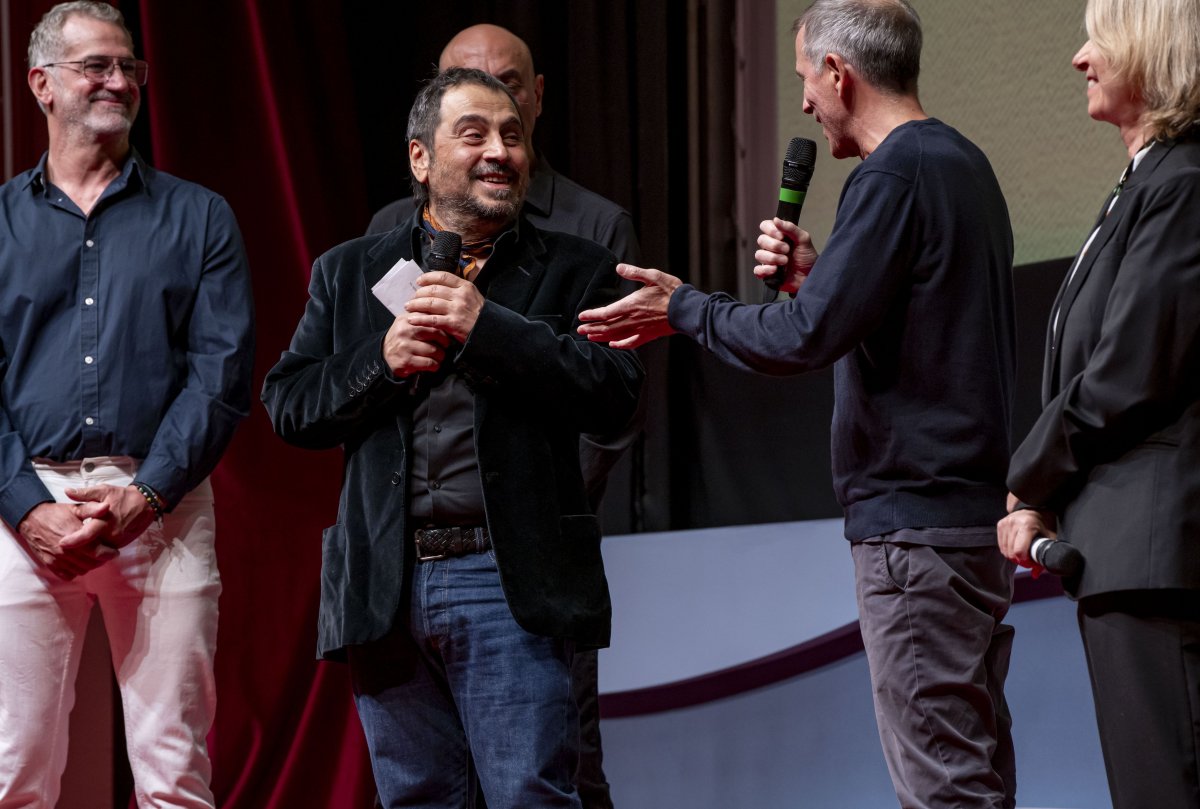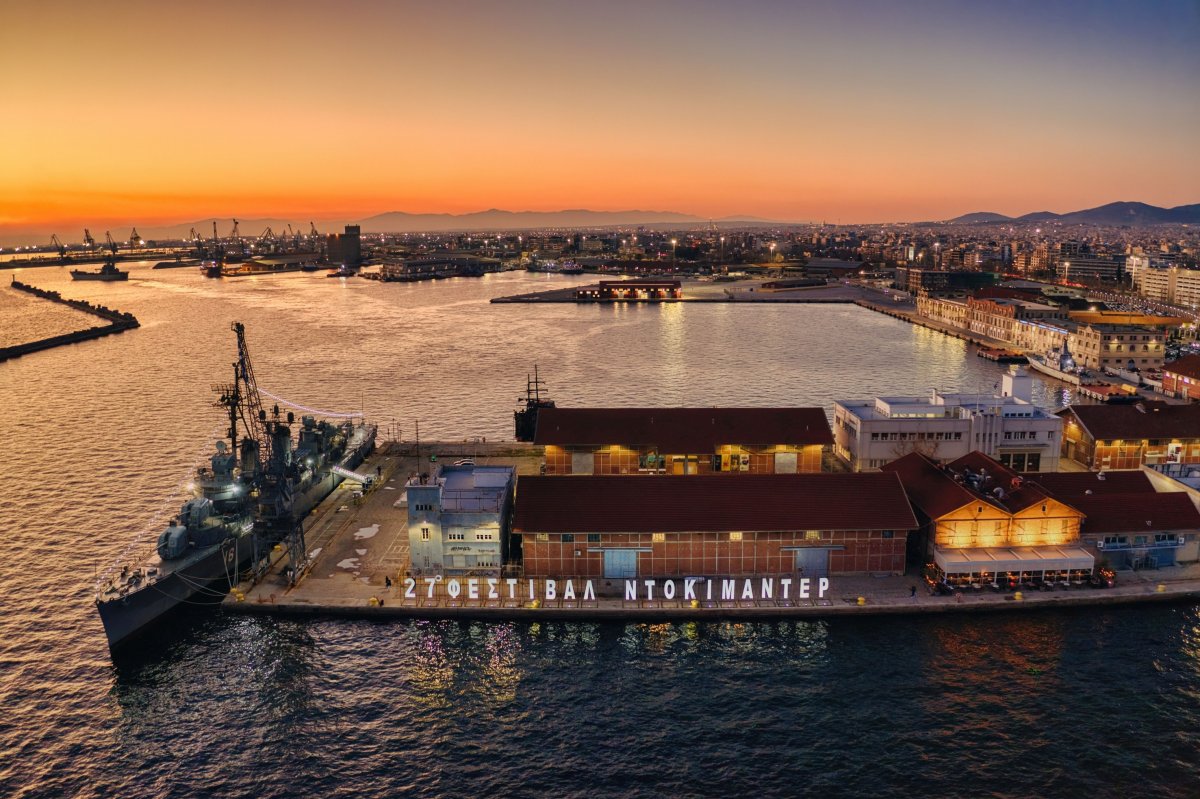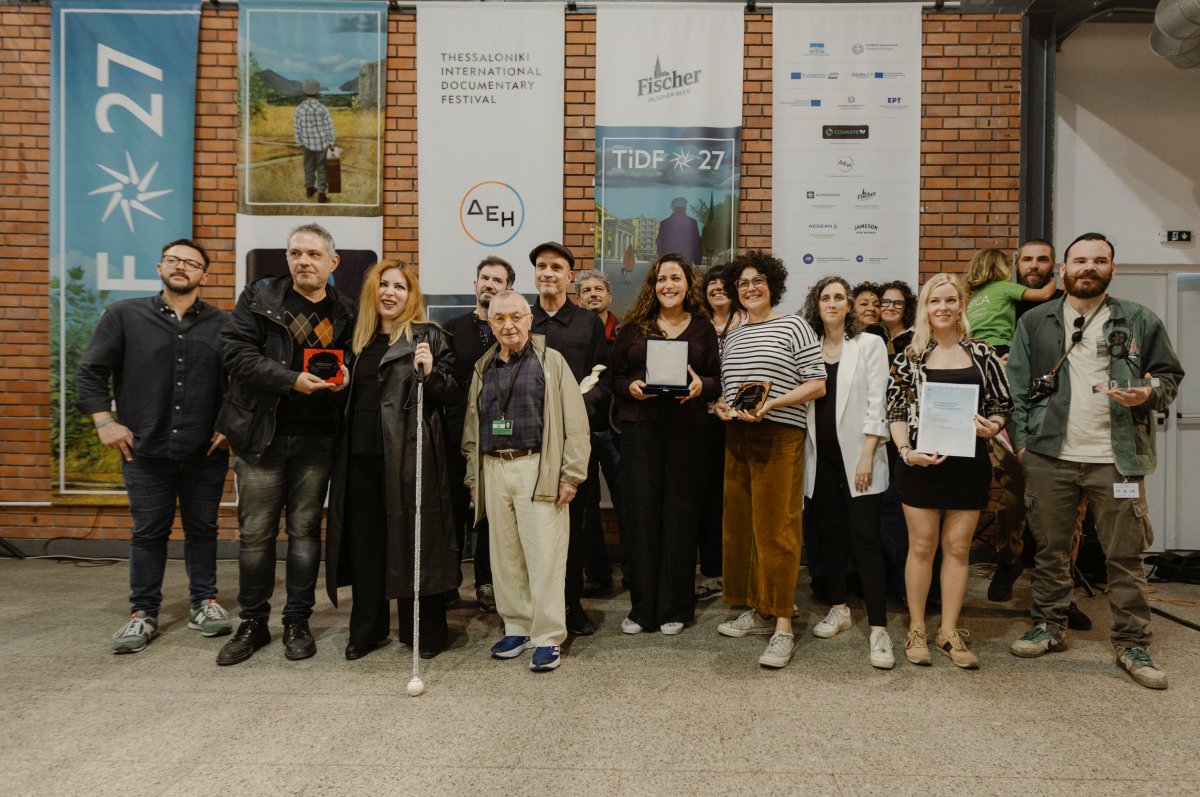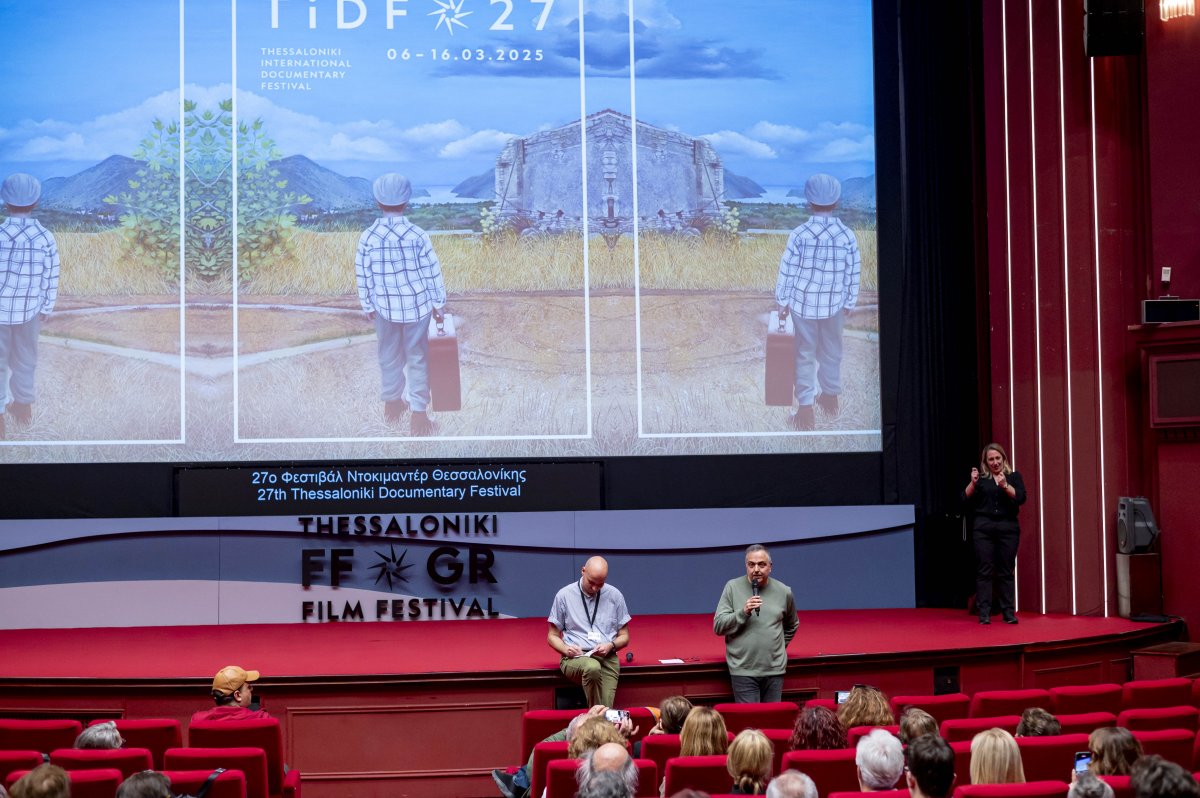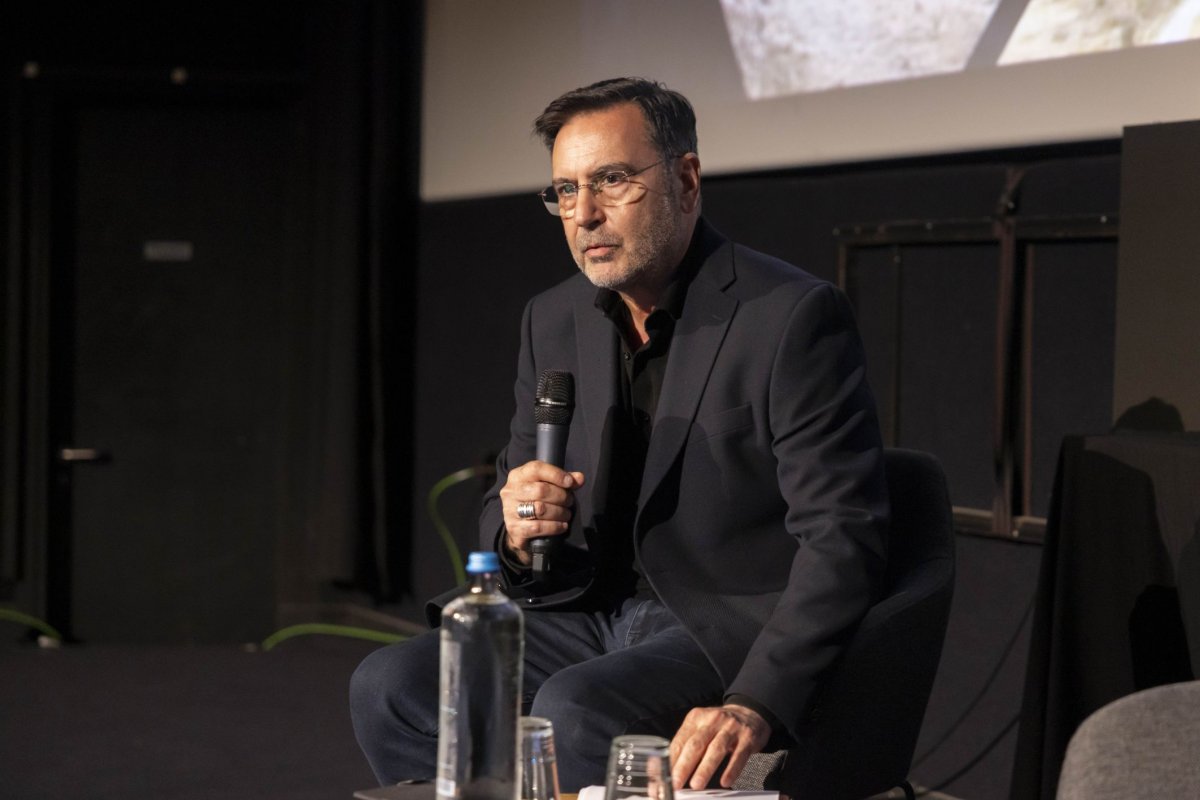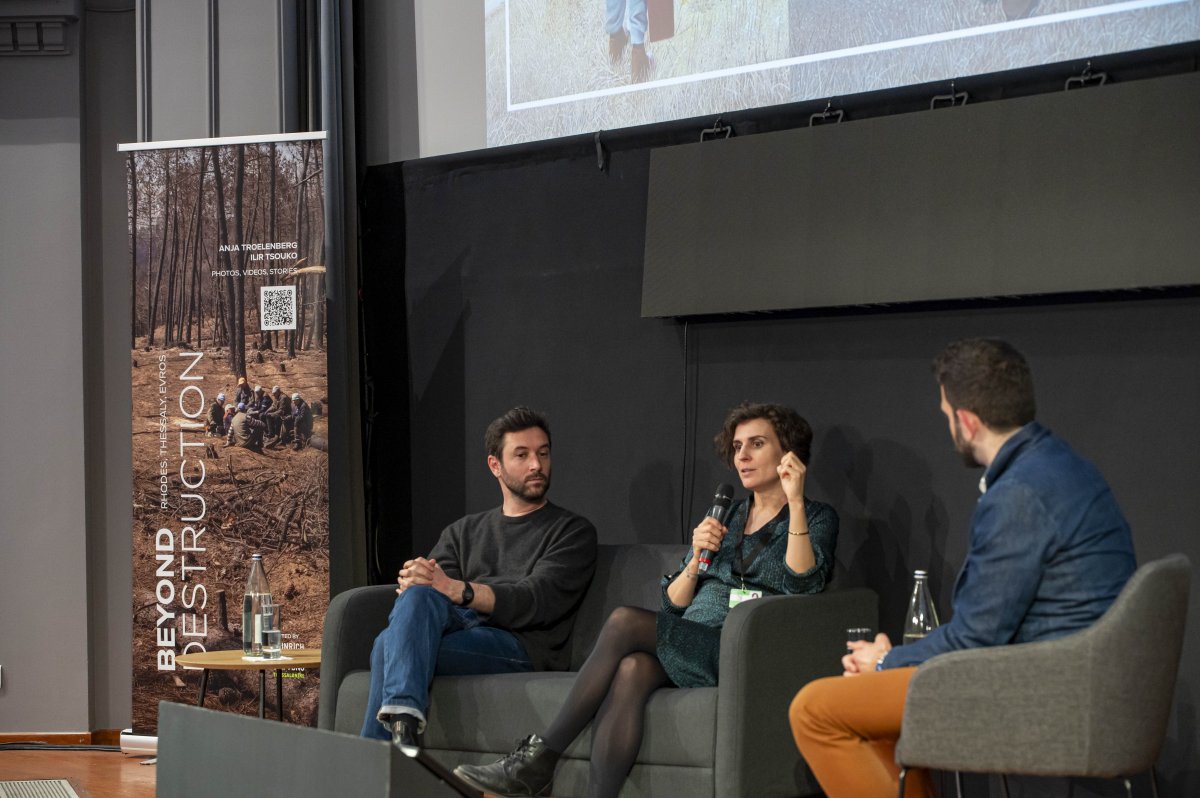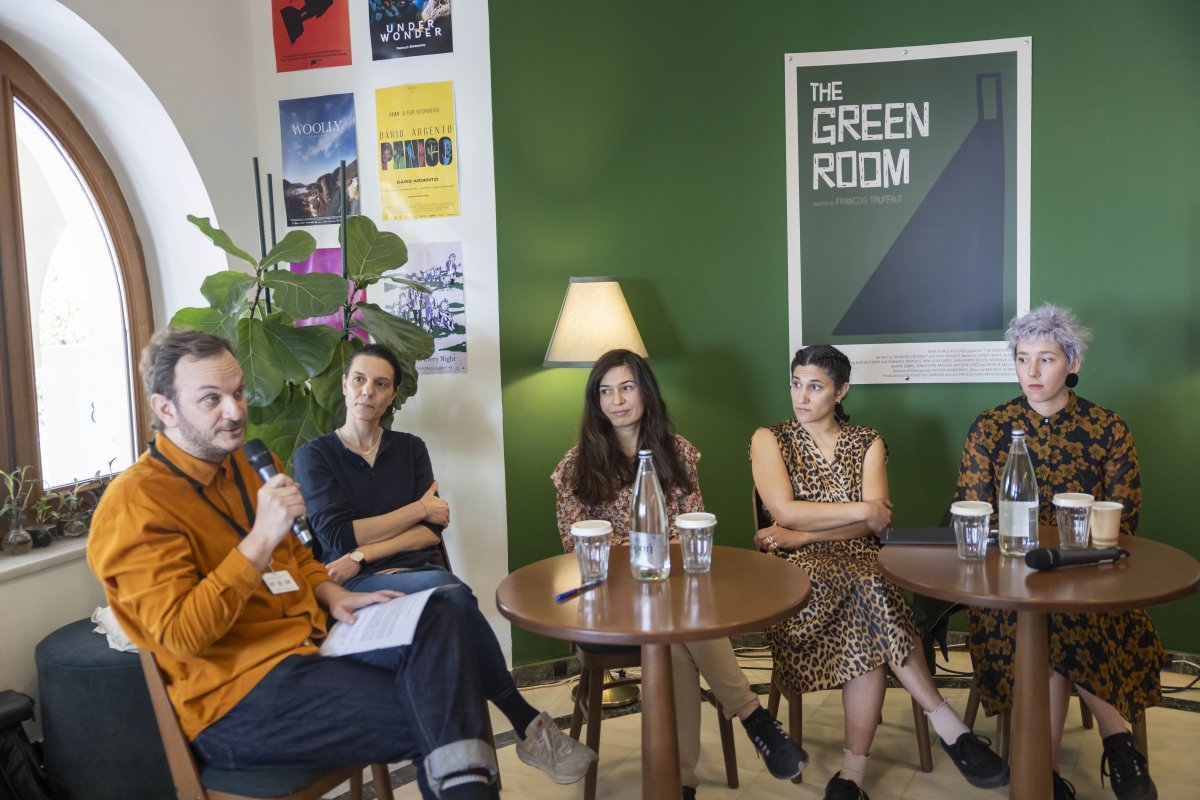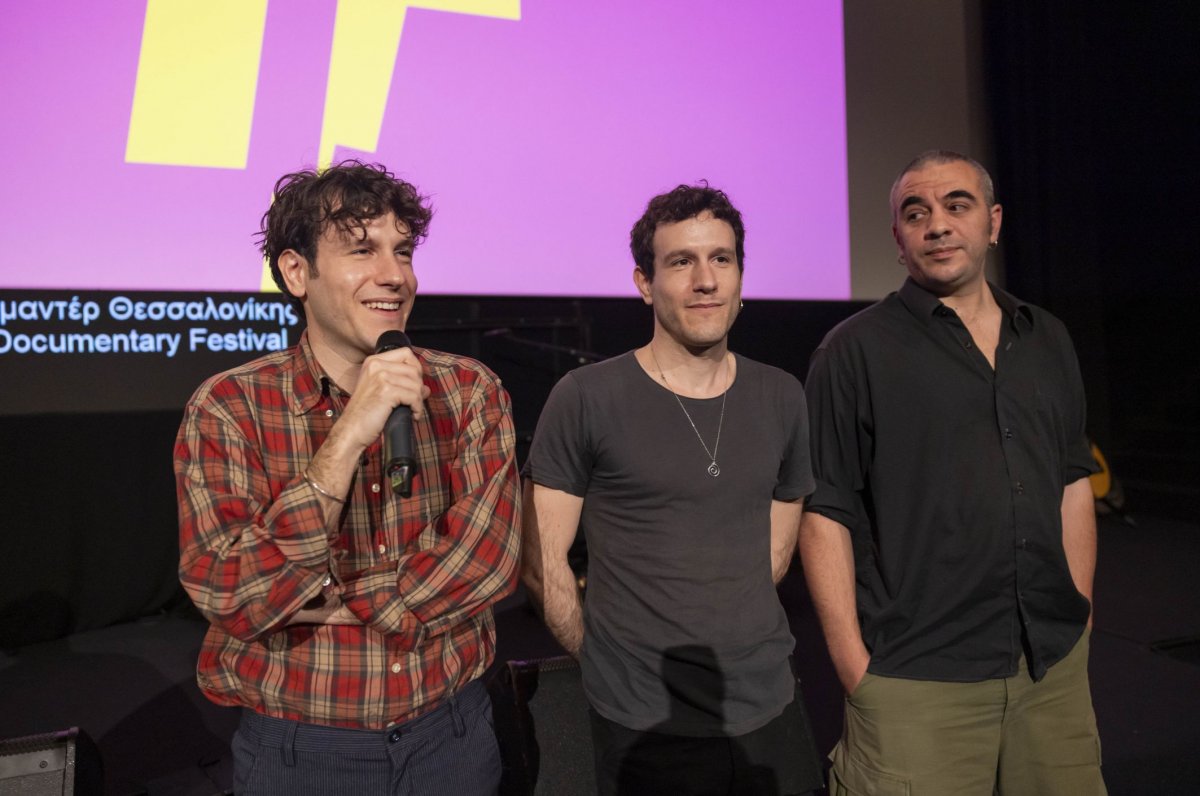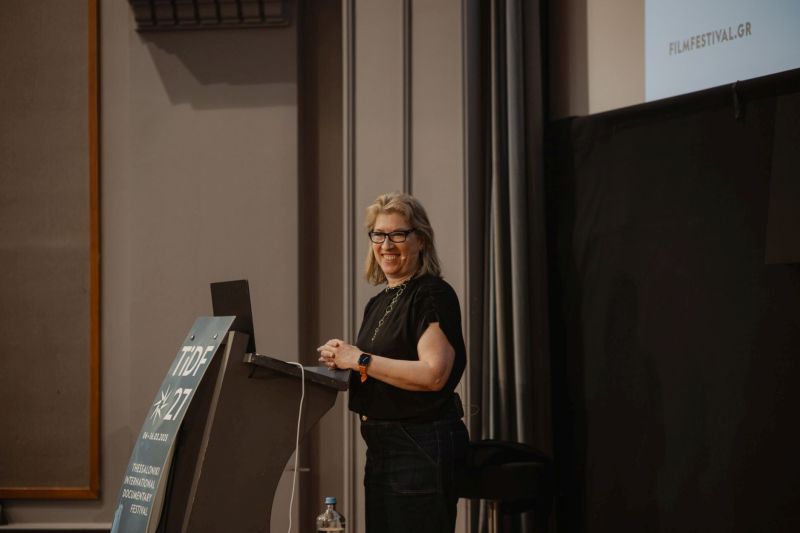The honorary Golden Alexander award was bestowed to Panos H. Koutras for his overall contribution to cinema, with the ceremony taking place at the Olympion theater, on Friday, November 8th. The award ceremony was followed by the screening of the film, The Attack of the Giant Moussaka, which marked Panos H. Koutras’ directorial debut.
The event was prefaced by the artistic director of the Thessaloniki Film Festival, Orestis Andreadakis: “We honor a great filmmaker who not only makes exceptional and critically acclaimed cinema, but also makes sure to take all the correct steps so as to become better human beings. An artist, who has filled the theaters with inclusivity and love with his films – as well as with his presence in the Festival these days. I present to you, Panos H. Koutras.” A short video featuring unforgettable scenes from the work of the beloved filmmaker was screened at this point.
The artist, sculptor, singer and actor Angelos Papadimitriou, who had collaborated with the filmmaker in the films Xenia, and Dodo, took the stage to bestow the Golden Alexander award. Remarking that “words aren’t nearly enough” to describe Panos H. Koutras, Mr. Papadimitriou opted to sing a song by Nikos Gounaris that is also heard in Dodo. “The world was altered, the times passed / everything is fake even if it all seems real / the world was altered, the times passed / you find love only in fairytales,” and he received an ovation from the audience.
Taking the floor, Panos H. Koutras thanked the Festival, the General Director, Elise Jalladeau, the Artistic Director, Orestis Andreadakis, as well as the Head of the Greek Program, Eleni Androutsopoulou. “In 1999 we came with the whole team to present The Attack of the Giant Moussaka with the same drive, gusto, and audacity with which we made it. We all thought we had created something great; we weren’t prepared for what was to come. Because we heard a lot of things, both prior and after the screening. That ‘the trash’ arrived, that ‘we have no respect for the Festival,’ that we ‘desecrated a sacred place,’ and much more,” the filmmaker recalled.
“After 25 years, on the occasion of this award, I am asked by many if I feel vindicated, claiming that my films have influenced Greek society and the cinema of younger filmmakers, maybe even the lives of certain people. I am sure whether this holds true, nor do I wish to dig it any further. What I know for sure is that the only way is to try and to persist. Even when everyone and everything around you tells you to stop,” he added. “In this journey, the people who helped, supported, inspired and defined me are mostly women. I would like to dedicate this award to women. To the ones no longer in life, the ones who are out there but also inside this theater. But most of all, I dedicate this award to my mother, Aliki Koutra,” said Panos H. Koutras upon receiving the honorary Golden Alexander.
In response to a question posed by Mr. Andreadakis on how he felt watching his film in a restored and digital copy, the filmmaker answered: “I’m nervous about how it will look like on screen, this screen in particular. It’s a film I have watched too many times in my life. Each time I watch it, I think ‘how did I do that and why?’ It seems incredible, and inconceivable, yet I did it and I’m very glad.”
After receiving the award, Mr. Koutras invited on stage the people who worked In The Attack of the Giant Moussaka: producer Ion Konstas, production designer, and co-producer Marianna Papageorgiou, who also made the props, director of photography Epaminondas Zaphiris, editor Elissavet Chronopoulou, and journalist Efi Papazachariou, actors Christos Mantakas, Gregory Patrikareas, and actress Roubini Vasilakopoulou, as well as Nikos Moutselos and Sakis Bouzanis of Studio 235, who helped restore the film.
“Participating in this film was a great pleasure. It was a feat of insanity what Panos dared to do. It was such an educational experience, both in terms of acting and of taking responsibility. We were a beautiful team. Panos is amazing, always helping out the actors,” Christos Mantakas mentioned. Taking the floor, Gregory Patrikareas noted: “The script was unique, we read it and said ‘what the hell is this?’ We knew it was one of a kind, as is Panos who convinced us to do it.” The filmmaker then referred to the film’s protagonist, who is no longer with us, Yannis Aggelakis, saying: “He was remarkable. A wonderful person with a genuine talent.”
Next, the actress Roubini Vasilakopoulou stated: "I had just given birth and I was vacationing somewhere when Panos filled me in on the idea. Of course, I loved it. The filming took one day. I portrayed a news anchor and I was partial to the idea. It was such a unique shoot. I loved Panos, we have explosive chemistry. I thank him, as does Greek cinema."
“I’m so emotional these days. He deserves this award,” uttered Elissavet Chronopoulou. "I'm very proud of this film. We felt like we had made a perfectly normal and typical film, but as we realized from the reactions later on, it wasn't." Elissavet Chronopoulou divulged that Panos H. Koutras' mother cooked the moussaka ‘starring’ in the film, which she ate almost in its entirety herself. "It was delicious!" she pointed out.
Marianna Papageorgiou then took the floor: “"I'm very moved as well, Panos, you truly deserve the award. We had no money, and to make the sets, a bunch of people gave us everything they had. Even the spaceship was made of simple materials, such as sellotape. For me, it was a coming-of-age film. We made it with a madness typical of teenagers. As is evident by the positive reactions and comments we have garnered for Moussaka all these years,” she said.
"He had told me the idea for the film and I said to myself, 'Great!’. This crazy idea stirred excitement in a lot of people, and that was how we ended up making a feature-length film. It was pioneering at the time and it was filmed with analog video with the intention of being a trash movie. And that's exactly what happened," Ionas Konstas stated. “In 1995 we started filming. Then I met Panos. We had audacity, as he also mentioned,” Epaminondas Zaphiris said. “We began making the film in 1995, but we stopped because we ran out of money. We shot some footage in Athens at night on Christmas of 1996, and we took it again in the summer of 1997,” Mr. Koutras added. “It was an unthinkable, inconceivable, wonderful and incredibly provocative film. Being involved in it was a risk. I will always remember the fun we had and how much we laughed. I’m very proud to be here,” Efi Papazachariou expressed, deeply moved.
A few words about the film:
The Attack of the Giant Moussaka (1999)
Actors: Myriam Vourou, Yannis Aggelakis, Christos Mantakas, Gregory Patrikareas, Themis Bazaka, Eugene Dimitriou, Roubini Vasilakopoulou, Michalis Pantos, Jenny Balatsinou, Dorothea Merkouri, Clio Chatzistefanou
In the year 2000, a terrible incident shocks the city of Athens: a huge piece of moussaka appears on the city streets, spreading panic and death. Everyone keeps wondering: why, where, how, for what reason? Everyone, except for Tara and a diverse group of people, who strongly believe they have to make contact with it.…


